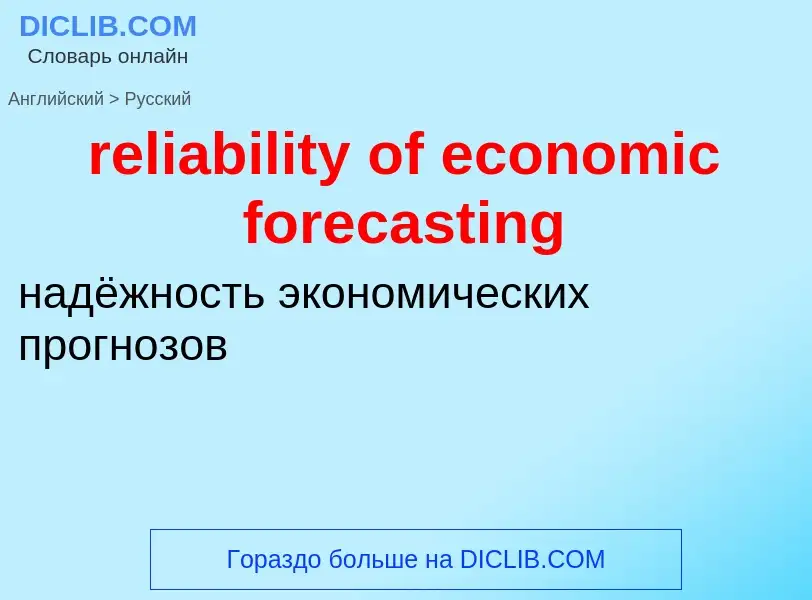Tradução e análise de palavras por inteligência artificial ChatGPT
Nesta página você pode obter uma análise detalhada de uma palavra ou frase, produzida usando a melhor tecnologia de inteligência artificial até o momento:
- como a palavra é usada
- frequência de uso
- é usado com mais frequência na fala oral ou escrita
- opções de tradução de palavras
- exemplos de uso (várias frases com tradução)
- etimologia
reliability of economic forecasting - tradução para russo
Definição
.
Wikipédia
Economic forecasting is the process of making predictions about the economy. Forecasts can be carried out at a high level of aggregation—for example for GDP, inflation, unemployment or the fiscal deficit—or at a more disaggregated level, for specific sectors of the economy or even specific firms. Economic forecasting is a measure to find out the future prosperity of a pattern of investment and is the key activity in economic analysis. Many institutions engage in economic forecasting: national governments, banks and central banks, consultants and private sector entities such as think-tanks, companies and international organizations such as the International Monetary Fund, World Bank and the OECD. A broad range of forecasts are collected and compiled by "Consensus Economics". Some forecasts are produced annually, but many are updated more frequently.
The economist typically considers risks (i.e., events or conditions that can cause the result to vary from their initial estimates). These risks help illustrate the reasoning process used in arriving at the final forecast numbers. Economists typically use commentary along with data visualization tools such as tables and charts to communicate their forecast. In preparing economic forecasts a variety of information has been used in an attempt to increase the accuracy.
Everything from macroeconomic, microeconomic, market data from the future, machine-learning (artificial neural networks), and human behavioral studies have all been used to achieve better forecasts. Forecasts are used for a variety of purposes. Governments and businesses use economic forecasts to help them determine their strategy, multi-year plans, and budgets for the upcoming year. Stock market analysts use forecasts to help them estimate the valuation of a company and its stock.
Economists select which variables are important to the subject material under discussion. Economists may use statistical analysis of historical data to determine the apparent relationships between particular independent variables and their relationship to the dependent variable under study. For example, to what extent did changes in housing prices affect the net worth of the population overall in the past? This relationship can then be used to forecast the future. That is, if housing prices are expected to change in a particular way, what effect would that have on the future net worth of the population? Forecasts are generally based on sample data rather than a complete population, which introduces uncertainty. The economist conducts statistical tests and develops statistical models (often using regression analysis) to determine which relationships best describe or predict the behavior of the variables under study. Historical data and assumptions about the future are applied to the model in arriving at a forecast for particular variables.

